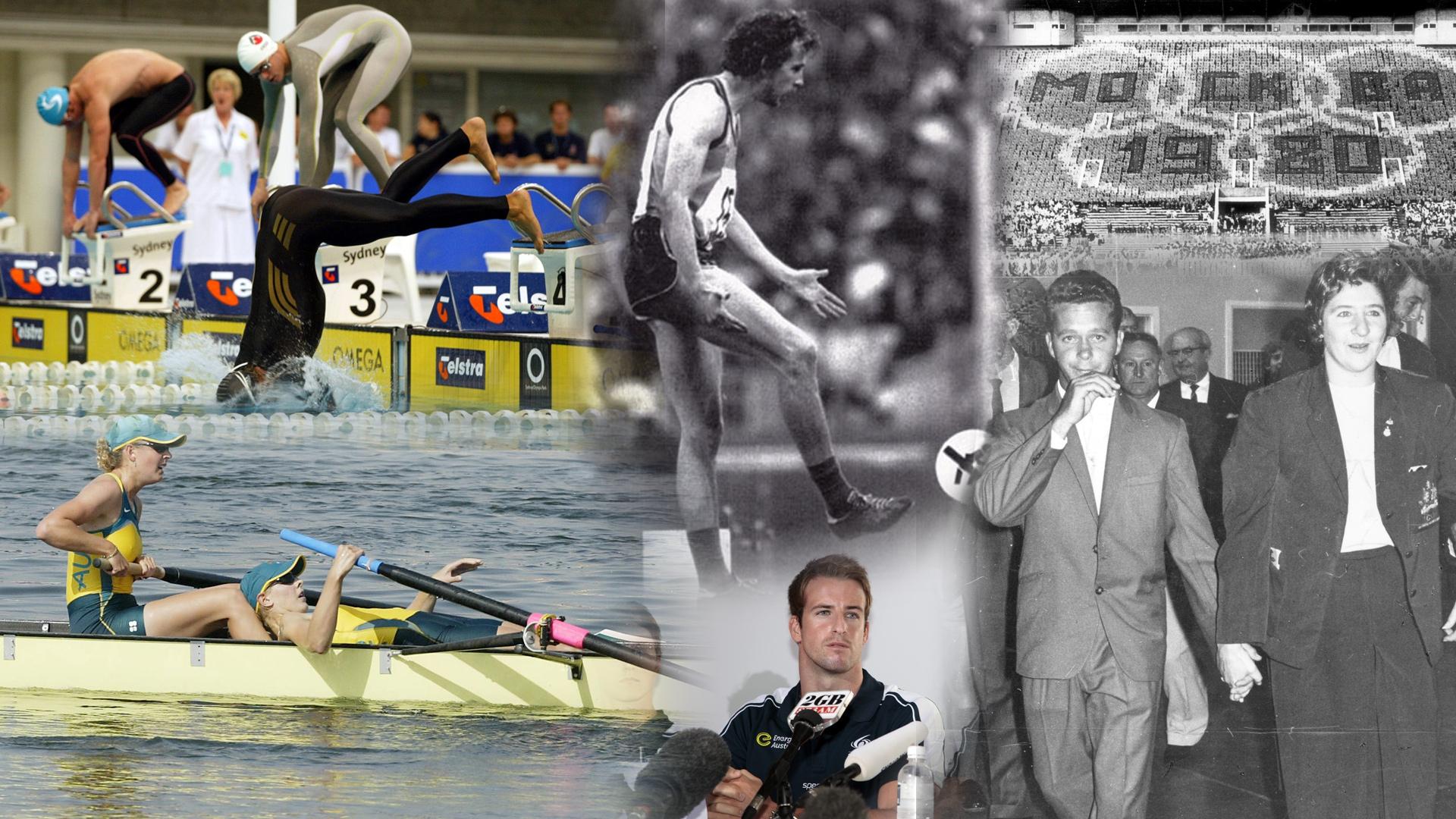
CRAIG Stevens is not just the Olympic swimmer who gave his spot to Ian Thorpe. He is also the bank teller who got robbed.
Not by a man in a mask but by a system which somehow got him to surrender up a hard-won medal and gave him nothing in return.
Stevens is best known for being the Good Samaritan who surrendered the place he earned in the Australian 400m freestyle for the 2004 Athens Olympics to good friend Ian Thorpe who had been disqualified on the trials after overbalancing on the blocks.
You would have thought, after that great act of chivalry, fate would have balanced the ledger but several years later it taunted him again.
Stevens won a bronze medal at the 2007 world championships in Melbourne and when gold medallist Oussama Mellouli from Tunisia was disqualified for failing a drug test, Stevens was hastily promoted to silver.
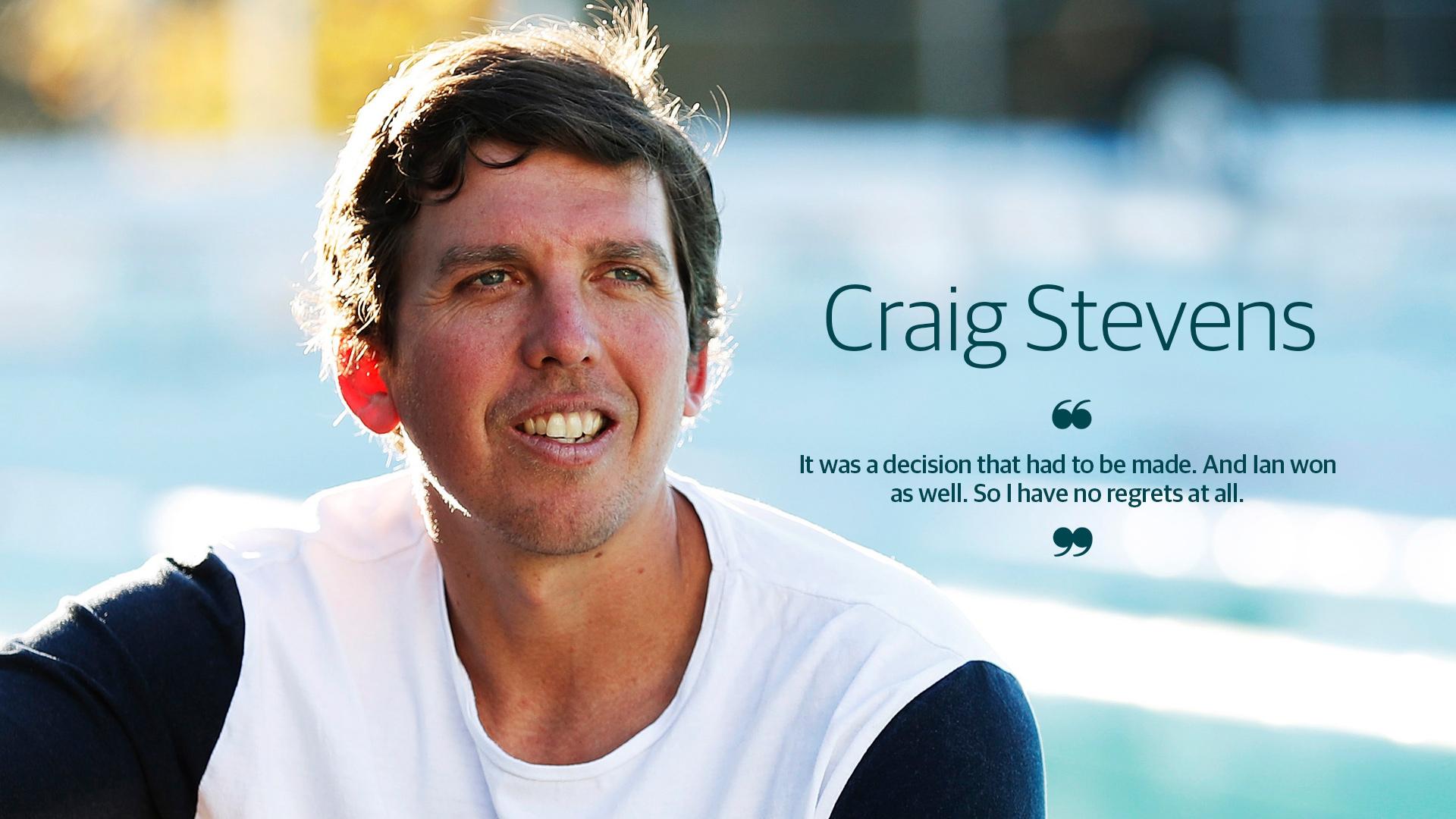
“I was asked to send back my bronze medal to receive my silver so I sent it to Swimming Australia but I never got the silver medal in return,’’ Stevens said.
“Swimming Australia were going to chase it up from their end. No-one there knows where the bronze medal went and they said they did not receive any silver medal.
“Now I don’t have any medals. That's a bit disappointing, not having something to show for an achievement I was able to accomplish.
“You don’t swim just for the medals but it would have been nice. But it happens.’
“With all the stuff that is happening with Russian athletes being disqualified hopefully people who get advanced have better luck and actually get to receive their medals from people who are disqualified.’’
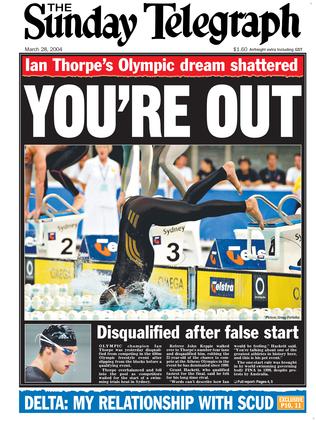
Stevens works as a swim coach at the Sans Souci Olympic pool in Sydney after having done jobs such as bank teller.
He seems a pragmatic, roll-with-the-punches kind of guy who does not dwell on the lost medal or his gift to Thorpe, willingly declaring if he had to stand down for Thorpe he would do it all over again.
“It was a decision that had to be made. And Ian won as well. So I have no regrets at all. It worked well for the swim team.
“Looking back it was a longer process than it should have been. I waited for it all to die down. There was quite a bit of media exposure and pressure. Being a swimmer and going somewhere for the first time there was always a thought that I could have really benefited from a first swim to get into the meet.
“It is a long time to wait for the 1500m on that last day without an early swim. It is always good at the national championships. That was my initially thinking but common sense prevailed.’’
Stevens and Thorpe were part of one of Australia’s most talked-about Olympic controversies but the list is long, varied and colourful.
It includes flag-stealers, rowers that ran out of puff, positive drug tests that were later discredited, boycotts and bonding sessions, controversial false starts, dodgy judging decisions and much more.
In terms a single controversial moment that created a running headline for years the top seed is swim champion Dawn Fraser conspiring to swipe an Olympic flag from Japan’s Imperial Palace during the 1964 Tokyo Olympics.
Fraser claimed that she and team doctor Howard Toyne and hoisted Australian hockey player Des Piper on their shoulders to souvenir flags from just outside the palace.
“We got two flags down and the next thing there were whistles blowing everywhere, the police had seen us, we’d been spotted, and they started to chase us. So we ran,” Fraser said.
Fraser was arrested after being found hiding in bushes but was released without charge. She may have been given the flag the next day but the Australian Swimming Union suspended her for 10 years before shortening the ban to four.
Some scandals took the men at the centre of them completely by surprise. When modern pentathlete Alex Watson was accused of failing a drug test to caffeine at the 1988 Seoul Games he started laughing because he thought it was a joke.
Watson is the only Australian athlete to fail a drugs test at an Olympic Games, blaming his excessive caffeine levels at the 1988 Seoul Games on too much coffee. With the caffeine test later exposed as being unreliable Watson cleared his name, had his life ban overturned and not only competed at the 1992 Olympics but was the man in charge of the modern pentathlon program at Sydney 2000.
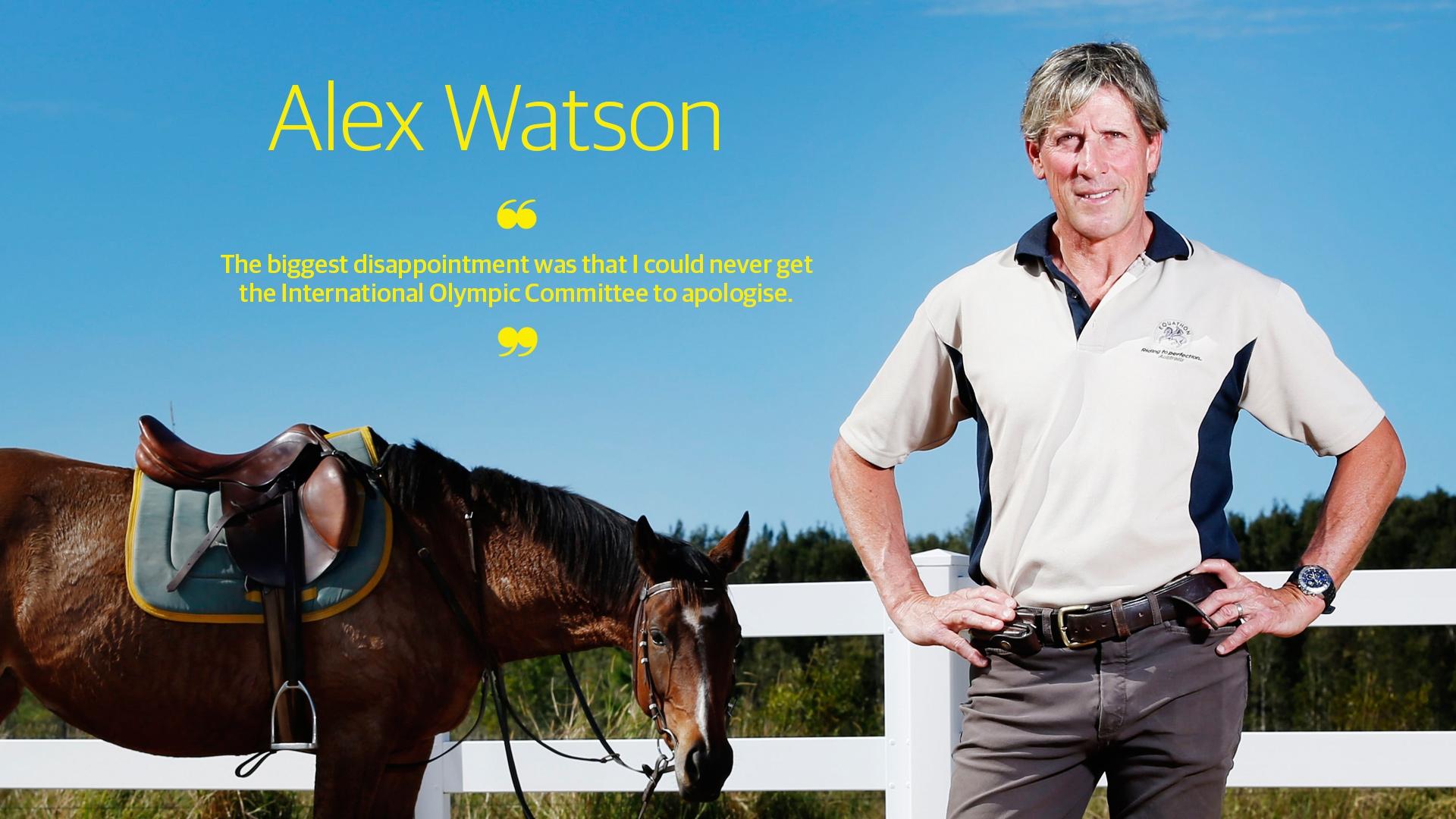
“When I was told of the positive test by my manager who was basically a mate of mine I said “oh yeah, very funny,’’ Watson said.
“It was not until I got back to the Olympic village and was taken to a room where John Coates and other Olympic officials were waiting I knew it was serious.
“The Australian Olympic Committee lifted my ban but the biggest disappointment was that I could never get the International Olympic Committee to apologise. The thing that stood out was the test they used which was made by professors Manfred Donike was flawed and they dropped. They realised you could not determine someone’s caffeine use by using that test.’’
Watson, who now runs an equestrian centre at Noosa, smiles at the enduring nature of his nickname - The Cappuccino Kid - and says he still enjoys a coffee.
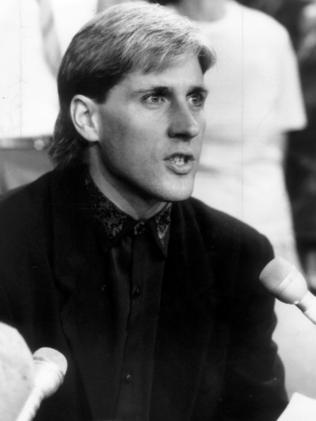
“You cannot be nicknamed the Cappuccino Kid and not like coffee. I still cop it. A French girl who works for me went into Noosa and met a triathlete and when she said she worked for me he said “that’s the Cappuccino Kid. She didn’t know. I told her it was a long story.’’
Watson may have finished his saga with a smile on his face but there were deeper scars for Sally Robbins who famously became “Lay Down Sally’’ when she stopped rowing during the women’s eight final at the 2004 Games in Athens.
It took her four years to break her silence and comment on the reasons why which were the opposite to people’s suspicions.
Rather than not try enough she felt she was over-trying.
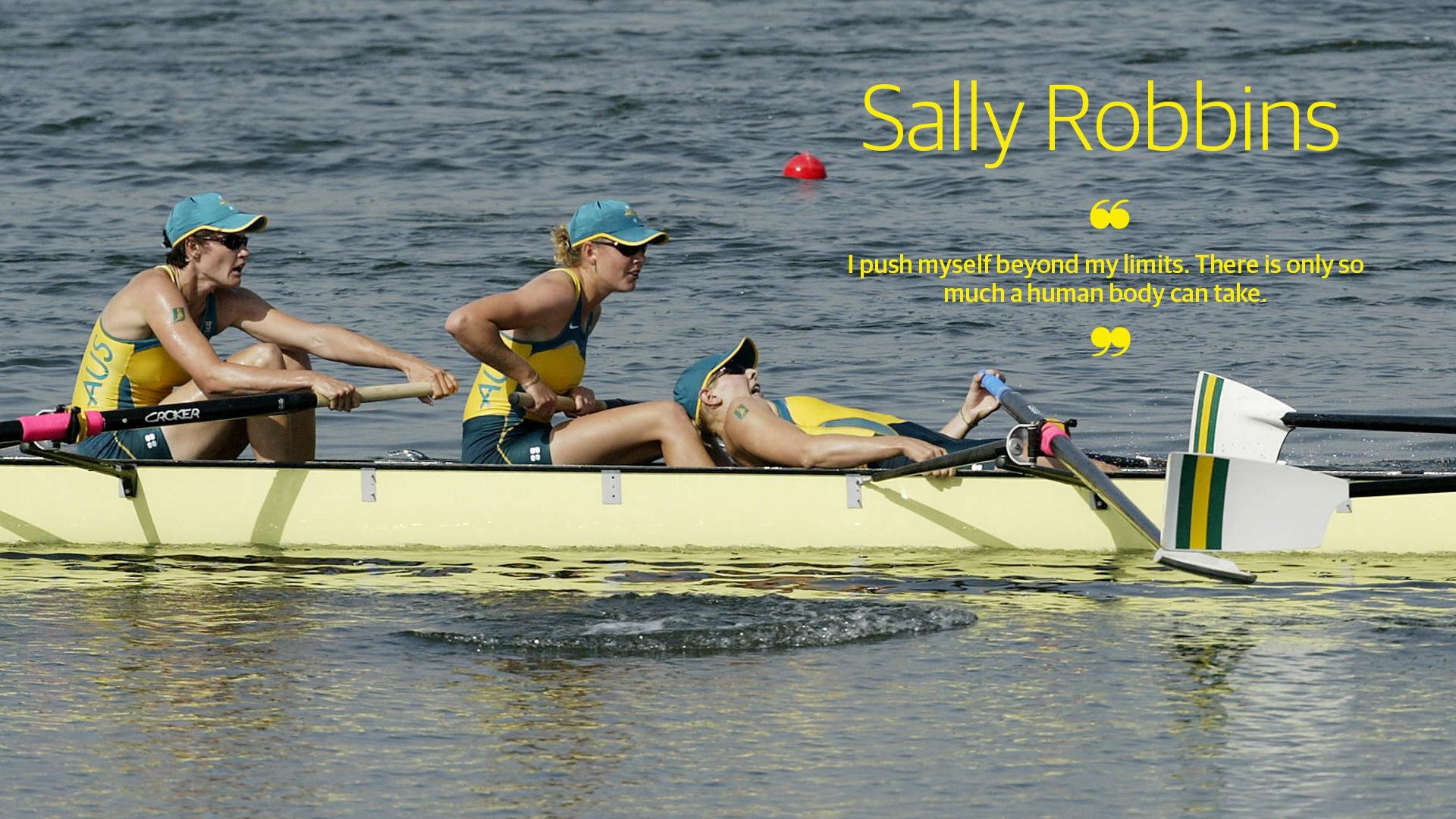
``In my personality I like to please others and try to do things beyond my capabilities. Outside of sport this is generally seen as a really good trait, but in rowing it has proved my weakness,’’ Robbins said. ``I push myself beyond my limits. There is only so much a human body can take.’’
Some scandals were sleepers in more ways than one, such as the Stilnox scandal which surfaced in the months after the London 2012 Olympics when six members of Australia’s swimming relay team, including James Magnussen, Cam McEvoy and Eamon Sullivan were fined for either taking the sleeping tablet during a team bonding session, handing it out or simply being part of a rowdy bonding session that disturbed other athletes.
The episode prompted a complete review of Australia’s Olympic behavioural standards.
Of all Australia’s Olympic controversies, few were so emotionally draining as Australia’s part boycott of the 1980 Moscow Olympics, an issue which fiercely divided the nation.
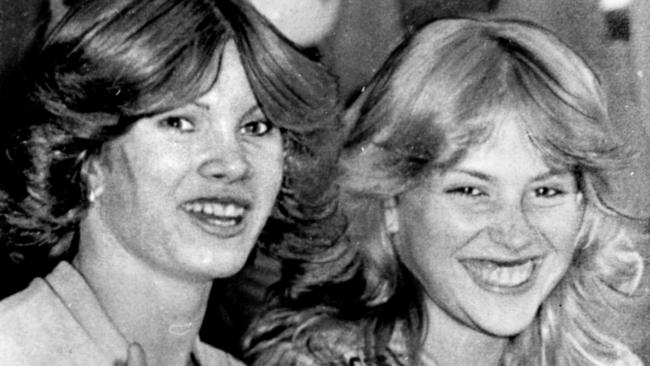
Prime Minister Malcolm Fraser did not have the power to order the Australian team not to go but he used all of his powers of persuasion and eventually many, including champion sprinter Raelene Boyle, withdrew feeling more emotionally shattered than after any of her world class 100m or 200m sprints.
“I did not have a political bone in my body and the stress of it all was just overwhelming,’’ Boyle said this week.
“I fell sick with pneumonia and I believe it was the pressure of that decision that caused it. It was a horrible time. We were being pulled in two different directions.’’
Many athletes did pull out but Australia still sent a team of 120 athletes and three decades later Fraser admitted the boycott was not his idea and he wish he never had to deal with it which provided no comfort at all from those who stayed at home because he thought they should.
It’s hard to know which direction to look for the likely scandal in Rio but something will raise its head. It would not be the Games without one.


Add your comment to this story
To join the conversation, please log in. Don't have an account? Register
Join the conversation, you are commenting as Logout
Top 10: QLD’s best schoolboy football prospects
A Rocky centre dominating in both codes, an Ipswich Grammar x-factor, a school leader set for the Titans, and the son of gun going to the Roosters. It’s the top 10 of our 50 best schoolboy footy prospects.
The 50: Schoolboy champs making their mark
An Ipswich SHS beast heading to Penrith, a PBC backrower snaffled by the Roosters, and a Downlands kid that plays like Ponga. It’s part four of our look at QLD’s best schoolboy footy prospects.